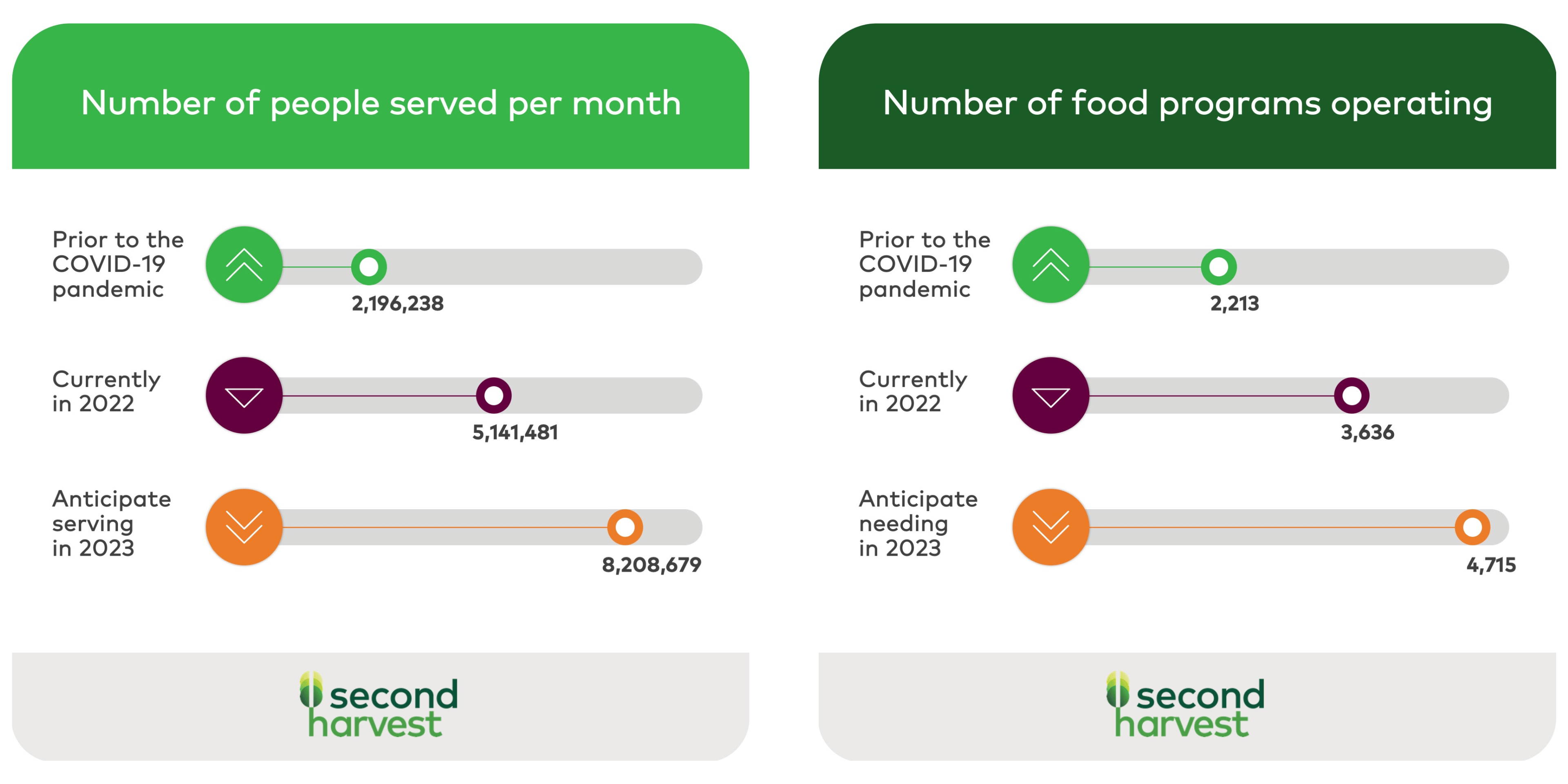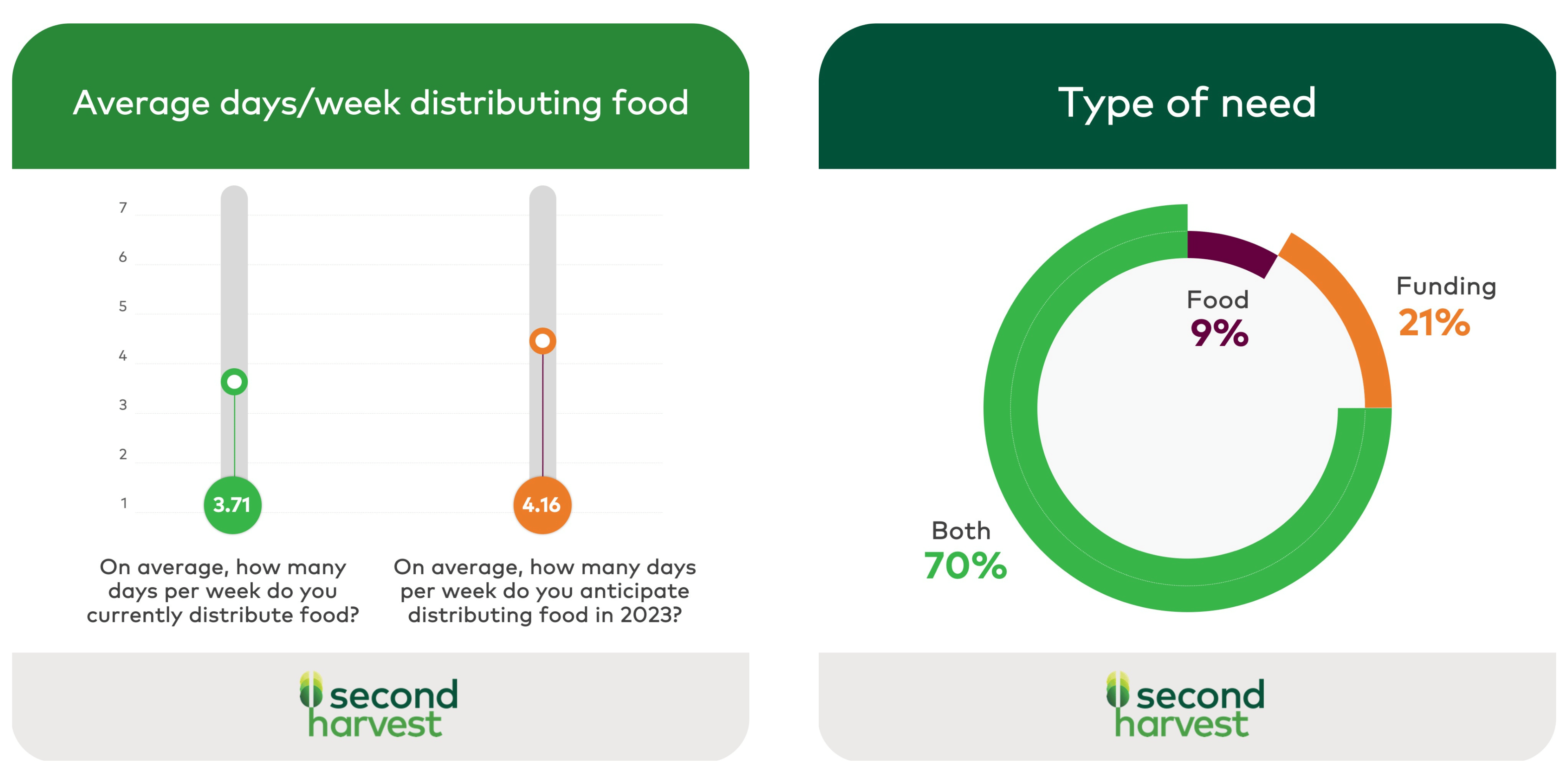It’s a new year, but there is no resolution in sight for Canada’s food insecurity problem.
Second Harvest surveyed more than 1,300 non-profit organizations in December 2022 to understand how the need for food charity is likely to change in the coming year.
What we found was not-profit charities and organizations that hand out free food to vulnerable Canadians anticipate demand to grow even higher in 2023, on top of huge growth last year. The end of Covid supports, food inflation and flat wages are all contributing to increased reliance on food charity, which include Food Banks, faith based programs, schools and community centres.
Unfortunately, the number of people served per month by non profit organizations dispensing free food is expected to increase by another 60% in 2023, on top of 134% growth in 2022, according to the research. Charities anticipate adding 30% more food programs in 2023, increasing the average number of days per week they hand out free food from 3.7 to 4.2.

In the short term, to meet the need, 70% of these agencies state they’ll need both food and financial support. Without more help, literally thousands of Canadians will not have enough food to feed themselves or their family, making 2023 an even tougher year than any of the time during the pandemic. In the long-term, individuals need government support like income regulation that’s indexed to inflation and solutions for affordable housing so that non-profit food programs are not needed in the first place. Without systemic change, food insecurity will only get worse in Canada. There are too many new non-profits filling legislative gaps to feed Canadians. Non-profits exist where policy does not.
“More food banks will not decrease food insecurity in Canada. More food banks are only treating the problem, not finding a solution,” says Lori Nikkel, CEO of Second Harvest, noting the unprecedented growth of food charity since the pandemic. The number of non-profit food programs in Canada increased by 214%, and an additional 60% is expected in 2023.
Access to food is a human right, not a privilege.











